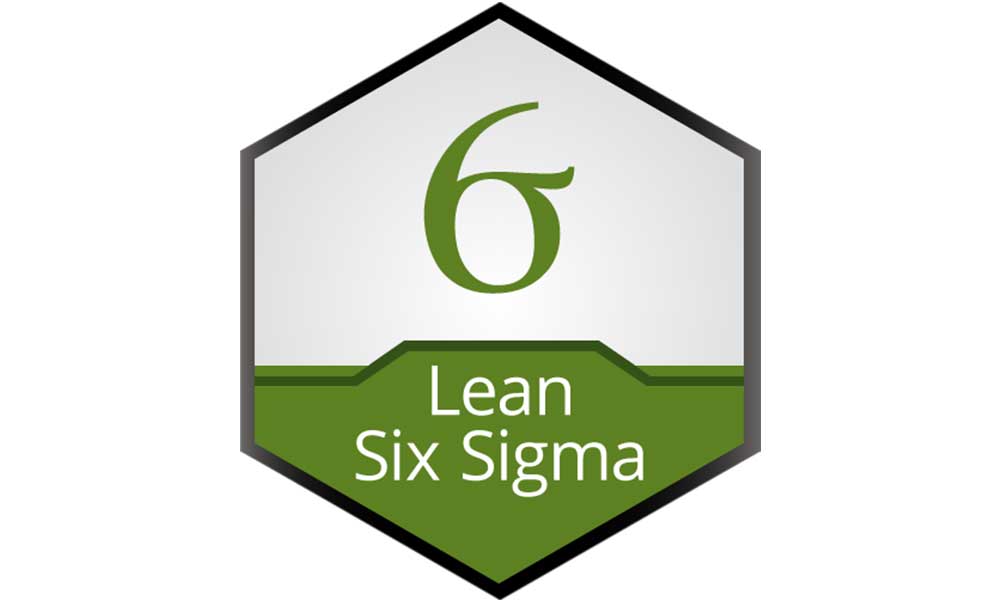If you would like to enhance your business acumen and analytical skills, you are at the right place. This article will help you to understand about methodologies of Lean, Six Sigma, and Lean Six Sigma. It will also elaborate on how these LSS skills and certification courses can help you in building your career. In the present scenario, the companies must use Lean Six Sigma principles to improve the quality of products and services to grow at world-class levels.
Let us understand lean first to get a better idea about the business processes.
What is Lean?
Lean is additionally called lean production, just-in-time production, or just-in-time manufacturing. Lean is a method that helps in reducing time within the production system and response time from suppliers to the customers. It is a systematic approach to eliminate steps that are wasteful and add only value-added steps. The term Lean was coined by John Krafcik. The companies use this strategy to improve their efficiency. The companies receive goods as per their need for production. This reduces inventory cost and wastage and also helps in increasing productivity. This step helps to ensure high quality as well as add customer satisfaction.
Lean helps in reducing the process cycle time, improves product quality and saves delivery time, eliminates the chance of defect generation, reduces inventory level, and optimizes resources. In most of the processes, 80-85% of activities are non-value-adding activities that cause customer dissatisfaction. The main purpose of lean is to identify the non-value-adding activities, use tools to eliminate those activities and improve efficiency.
Lean is based on the TPS concept (Toyota Production System). The lean methodology can be applied to manufacturing as well as services. It follows the 3 M concept of Toyota Production System- Muda, Mura, and Muri.
• Muda refers to the activities that do not add value to the production of a product or service for the customer. 7 wastes were identified in the manufacturing processes and the main objective of lean was to get rid of them.
• Mura refers to the inconsistency in production. These variations lead to uneven workloads, inventory accumulation, and waiting for the product. The presence of mura leads to muda.
• Muri occurs when there is too much stress and strain on people and machines. Over usage of machines in plants and overtime data in offices are examples of Muri. Muri additionally ends up in Muda & dissatisfaction among the people.
Introduction to Lean Tools
- VSM (Value Stream Mapping)-This lean tool helps to identify process waste and the causes of that waste.
- Just in Time-This approach in lean is used to meet the demands of the customer as and when it comes.
- Kaizen- This approach involves small-small improvements. It involves the down-level people who work towards process improvement, are helped by subordinates and are supported by the management.
- Gemba (Go and See) –This lean tool aims to observe the process in real-time, record the observations and find the shortcomings.
- Heijunka-It aims to maintain a balance i.e evenly distribute the load by balancing the production.
- Jidoka- It is also known as intelligent automation. It stops production if a defect occurs.
- Poke Yoke- It is used to alert the operators of defects or failures.
- SMED (Single minute exchange of dies) – This lean tool reduces change over time to within ten minutes.
- Kanban- This is a signal system to manage inventory levels. It works on a real-time basis. It alerts when there is excessive inventory.
What is Six Sigma and the various levels of Six Sigma?

Six Sigma was developed by Bill Smith in the year 1986. It is a set of tools used by organizations and companies to enhance their production, remove defects and guarantee the standard of the merchandise. Six Sigma is a methodology for process improvement.
The variation in a process leads to error, errors lead to risk, and risk leads to product defects which further leads to customer dissatisfaction. The Six Sigma method ultimately reduces defects, errors, process costs and increases customer satisfaction. Six Sigma helps organizations in identifying errors, validating assumptions, brainstorming solutions in a business process, and helping in rectifying them. It will help to improve your credibility. Lean Six Sigma Certification can facilitate to validate your professional skills.
Before we venture further into the details, let’s understand the various levels of Six Sigma Certification. The Six Sigma Certification includes white belt, yellow belt, green belt, black belt, and master black belt.
• Six Sigma White Belt
A person with Six Sigma White Belt Certification is familiar with the basic tenets of Six Sigma methodology. It deals with the essential six sigma certification concepts which help to support change management in an organization. One can engage with the local problem-solving team by obtaining this certification. It only provides a basic introduction and overview of Six Sigma methods.
• Six Sigma Yellow Belt
This is a step above White Belt. You can learn basic information about the DMAIC ( Define, measure, analyze, improve, control) method which is used to improve the processes. This Certification will help you to know how and where to apply the specifics of Six Sigma. With a yellow belt, you can understand the overall methodology and get information about basic data collection. You can support the project teams on problem-solving tasks by getting this certification.
• Six Sigma Green Belt
Green Belt Certification holders work under the supervision of the black belt or master black belt.
You can handle small projects and help in applying the tools to a project. This Certification will help you to understand the advanced analysis that can help to resolve the problems related to quality. You can lead projects and assist with data collection as well as analysis. One can also teach others within an organization about the Six Sigma methodology. You can become Middle Managers, Business analysts, and Project Managers with this certification.
• Six Sigma Black Belt
A certified Six Sigma Black Belt works as a Project Leader. This Certification will help you to become experts who become agents of change. You can lead projects as well as provide training after this certification course.
• Six Sigma Master Black Belt
This is the highest level of certification achievable for Six Sigma. A master Black Belt manages Green and Black Belt. You can act as a consultant as well as coach black and green belts.
Requirement for Six Sigma Certification
The white or yellow belt Six Sigma Certification Exam is short and covers the basic concepts of the Six Sigma methodology. Six Sigma Green belt exams are of a longer duration. It includes questions related to statistics and basic calculations. Six Sigma Black Belt exam may take 3-4 hours for completion. They test for understanding and applications. To achieve this professional designation you have to attempt the IASSC Certified Lean Six Sigma Green Belt Exam and secure a minimum of 70%. To appear for the exam you do not require any pre-requisite qualification.
Why one ought to pursue Six Sigma Certification Course?
Now, you might be wondering why you should get a Six Sigma Certification. A Six Sigma Certification will help-
1. Organizations to scale back the chance and eliminate all errors or defects.
2. Improve business processes
3. Sustain the quality improvement
4. Increase your value across industries
5. Guarantee compliance
6. Rise to Managerial positions
7. Profitable Salary
8. Gain hands-on expertise in quality management
What is Lean Six Sigma?
Lean Six Sigma is a data-driven philosophy that values defect prevention over defect detection. It aims at customer satisfaction. Lean Six Sigma reduces variation, waste, and cycle time. It combines the strategies of Lean and Six Sigma to reduce or eliminate process waste to improve the efficiency and quality of the process.
What are the elements of Lean Six Sigma?
The three key elements of Lean Six Sigma are-
- Customers- The customers demand the best at the lowest price and this calls for an outside-in approach to business processes.
- Processes- Customers would like to pay only for the product but not for the inefficiencies. Lean Six Sigma helps to produce quality output and improve the value chain. The customers get satisfied as they get the best quality product within the expected time.
- Employees-Lean Six Sigma is the DNA of an organization. It should be practiced from the grass-root level by every organization.
Why is Lean Six Sigma gaining momentum?
Lean and Six Sigma methodology go hand in hand to improve processes by reducing the variation and eliminating waste. It helps to develop streamlined processes with high-quality results. It helps in achieving the business goals and gaining profit. LSS improves the performance of an organization and increases efficiency. Only companies that churn out innovative solutions gain customer satisfaction. Lean mainly focuses on the waste reduction or elimination of waste, simplification of the process, reduce rework in the value chain whereas Six Sigma focuses on improving the quality outcome to customers by reducing the process variations. Lean Six Sigma is a convergence of both Lean and Six Sigma methodologies to create a pragmatic approach to improve the processes in an organization.
Now that you have understood Lean, Six Sigma, and Lean Six Sigma, let’s check out some of the institutes that provide these courses.
1. Henry Harvin Academy
This academy is ranked No.1 in Six Sigma Certification amongst Top 5 by India Today, Business Standard, and the Tribune. It is aligned to IASSC. The institute combines Lean and DMAIC to impart skills. It imparts 100% practical training. You can gain experience in 12 projects, get 1 year Gold Membership of Quality Management Academy. The curriculum is designed as per the IASSC Book of Knowledge. It provides 24/7 lifetime support as well as access to recorded videos. You can attend boot camps develop interview skills and get career services. The academy guarantees internship and weekly job supports.
The main courses that are offered by this institute are-
A) Lean Six Sigma Course Green Belt
About the Course
- It is Ranked No.1 in Six Sigma Certification Course
- Six Sigma Certification Course is ranked amongst Top 5 by Business Standard, India Today & the Tribune
- Aligned to IASSC Book of Knowledge
- Uses DMAIC Methodology to impart skills
- It offers both Classroom and 28 hours of live online interactive classroom option
- 100% practical training & 100% placement available
- You can gain 12 projects Experience
- Avail 1 year Gold Membership
- 24/7 lifetime support and access
- You can get a hallmark certificate of CSSE-GB from Henry Harvin
- Can attend regular boot camps and hackathons
Course Curriculum– It includes Six modules + 2 complimentary modules
Course Fees– i) Self-paced Course- Rs. 15750/-
ii)Live Online Classroom-Rs. 17,500/-
Process- 1. Registration→2. Attend Six Sigma Green Belt Classes→3. Give Six Sigma Green Belt Exam →4. Earn Six Sigma Green Belt Certification
For more information- Call 919015266266
Or Click the following link
B) Lean Six Sigma Course Black Belt
About the Course
- Ranked No.1 Six Sigma Black Belt Certification Course
- Nearly 9361+ participants are trained from this institute
- Six Sigma Certification Course amongst Top 5 by Business standard & The Tribune
- Aligned to IASSC Book of Knowledge
- Uses DMAIC Methodology to impart skills
- Both Classroom and 36 hours of live online interactive classroom options available
- 100% practical training & 100% placement available
- E-learning access to tools and techniques
- ¨You can gain expertise in both Lean and Six Sigma Methodology
- Gain experience by doing 12+ projects
- 1 year Gold Membership
- 24/7 lifetime support and access
- Get a hallmark certificate of CSSE-GB from Henry Harvin
- Attend regular boot camps and hackathons
Course Curriculum– It includes 7 modules + 2 complimentary modules
Course Fees- i) Self-Paced Course- Rs. 26550/-
ii)Live Online Classroom- Rs. 29,500/-
Process- 1. Registration→2. Attend Six Sigma Black Belt Classes→3. Give Six Sigma Black Belt Exam →4. Earn Six Sigma Black Belt Certification
For more information- Call 919015266266
Or
Click the following link
Lean Six Sigma Black Belt Training
C) Lean Six Sigma Course Master Black Belt
About the Course
- Ranked No.1 Six Sigma Master Black Belt Certification Course
- Six Sigma Certification Course amongst Top 5 by Business standard & The Tribune
- Step in to become the explicit quality professional
- Execute Lean Methodologies with perfection after the course.
- Both Classroom and 36 hours of live online interactive classroom options are available
- 100% practical training & 100% placement available
- 100% money-back guarantee
- Mobile App access to Moodle E-learning portal
- E-learning access to tools and techniques
- Gain Advanced Expertise over Lean and Six Sigma Methodology
- Gain experience by doing 12+ projects
- Avail 1 year Gold Membership
- Get 24/7 lifetime support and access
- Get a hallmark certificate from Henry Harvin
- Attend regular boot camps and hackathons
- Course Curriculum– It includes 6 modules + 2 complimentary modules
- Course Fees– i) Self-Paced Course- Rs. 53,550/-
ii)Live Online Classroom- Rs. 59,500/-
- Process- 1. Registration→2. Attend training program→3. Submit projects assigned →4. Get Certified
For more information- Call 919015266266
Career Benefits of doing these Courses from Henry Harvin Institute
- It helps you to get exposed to millions of jobs globally.
- You can get hired by International brands
- It adds value to highly paid or get hired with high salary in best organizations
- Improve your CV & LinkedIn Profile
- Get noticed for your in-demand skills
- Get better job security and exceptional growth.
2. Simplilearn –
Become a Lean Six Sigma Expert by joining the Lean Six Sigma Program by Simplilearn.
About the Course
- IASSC Lean Six Sigma Green Belt and Black Belt Certification
- 13 Projects, 12 Simulation exams, 18 Case studies & 114 PDUs
- 8X Higher Live interaction in Live Online Classes by Industry experts
Courses Offered
- Lean Six Sigma Green Belt
- Minitab
- Lean Six Sigma Black Belt
- Harvard Business Publishing Case Studies for Lean Six Sigma
Course Fee- Rs. 18644/-
3. Udemy-
Lean Six Sigma Green Belt Online Course
About the Course
23 sections/ 174 Lecture/16 hrs/Minitab/ Download 108 resources/LSS Case Study/ Eng Subtitles/ Mock Test
- 15.5 hours of on-demand videos
- 18 articles
- 115 downloadable resources
- Practice test
- Lifetime access
- Certificate on completion
- Globally recognized
- Free e-mail guidance
Course Cost-Rs. 3499/-
4. Six Sigma Green Belt Specialization by Coursera
Courses offered
- Six Sigma and the Organization
- Six Sigma Advanced Define and Measure Phases
- Six Sigma Advanced Analyze Phase
- Six Sigma Advanced Improve and Control Phases
About the Course
- Earn a certificate on completion
- 100% online classes available
- Flexible schedule provided
- Hands-on Projects
- Self-paced learning option
- Course videos and recordings
- Practice tests
- Graded assignments
Now that you have read about the institutes that offer the Lean, Six Sigma & Lean Six Sigma Courses, let’s find out more about it.
Eligibility Criteria for Six Sigma Certification
- Six Sigma Yellow belt- No prerequisite & No test
- Six Sigma Green Belt- 3 years of experience in their field of expertise. Should pass an exam of 100 marks with MCQ-type questions.
3, Six Sigma Black Belt- Should have completed one or two projects and should have 3-4 years of experience in the field of expertise. Should pass an exam of 150 marks with MCQ-type questions.
4. Master Six Sigma Black Belt- Should possess black belt certificate with 5 years of experience in the role of Six Sigma Black belt or masters black belt. Should also complete around 10 projects.
Career opportunities for various levels of Six Sigma
- A yellow belt certified professional can look forward to the following job profiles with a salary ranging from 4-10 lakhs per annum.
- Business Process Analyst
- Supply Chain Manager
- Business Optimization Specialist
- Technical Support Manager
- Continuous Improvement Manager
- 2. A green belt certified professional can look forward to job profiles with salaries ranging from 5-12 lakhs per annum.
- Management Analyst
- Manager
- Data Analyst
- Operational Excellence Manager
- Performance Excellence Manager
- Supply Chain Program Analyst
- 3. A black belt-certified professional can look forward to job profiles ranging from 6-22 lakhs per annum.
- Quality Manager
- Project Manager
- Operation Manager
- Operation Team Leader
Some of the top companies hiring Six Sigma Certified Professionals are-
- Accenture
- TCS
- HCL
- Genpact
- IBP
- Honeywell
- General Electrics
- Volkswagen
Conclusion
Now that you have understood the benefits of Lean, Six Sigma, and Lean Six Sigma, you can look forward to improving your CV and building your career with a lucrative Salary. A Certification will improve your capabilities as a leader in an organization. With most of the organizations using Lean Six Sigma’s performance optimization methods, a certification will set you apart from the other candidates. Certification in Six Sigma is a powerful tool to add to your skill sets and impress employers.
FAQs
This is a production method that aims at reducing wastes and time in the production system as well as response time. It works on the Toyota’s 1930 operating mode, “The Toyota Way”. It provides customer satisfaction and improves efficiency.
Six Sigma is a set of techniques or tools used for the improvement of processes. It was introduced by Bill Smith. It is a benchmark that shows how a business process should work,
Six Sigma is used to improve the capabilities of business processes in an organization. It increases the performance and decreases the process variation. And thus reducing the defect and improving the quality of products and services. Example- It was used by Wipro for instance when it was lacking in consumer goods production and customer service. The defects were neutralized with Six Sigma.
Define, measure, analyze, improve, and control process is a strategy to improve the processes in an organization.
Six Sigma methodologies are implemented through DMAIC and DMADV. DMAIC means- Define, measure, analyze, improve and control. DMADV means- Define, measure, analyze, design, and verify. These methodologies improve customer retention, better time management, shorter cycle times, motivate employers, develop strategy, and build a stronger supply chain.
A certified course in Six Sigma will be beneficial for the individual and also for the company. Becoming a certified professional will help to gain experience in project management and build expertise in a particular field.















